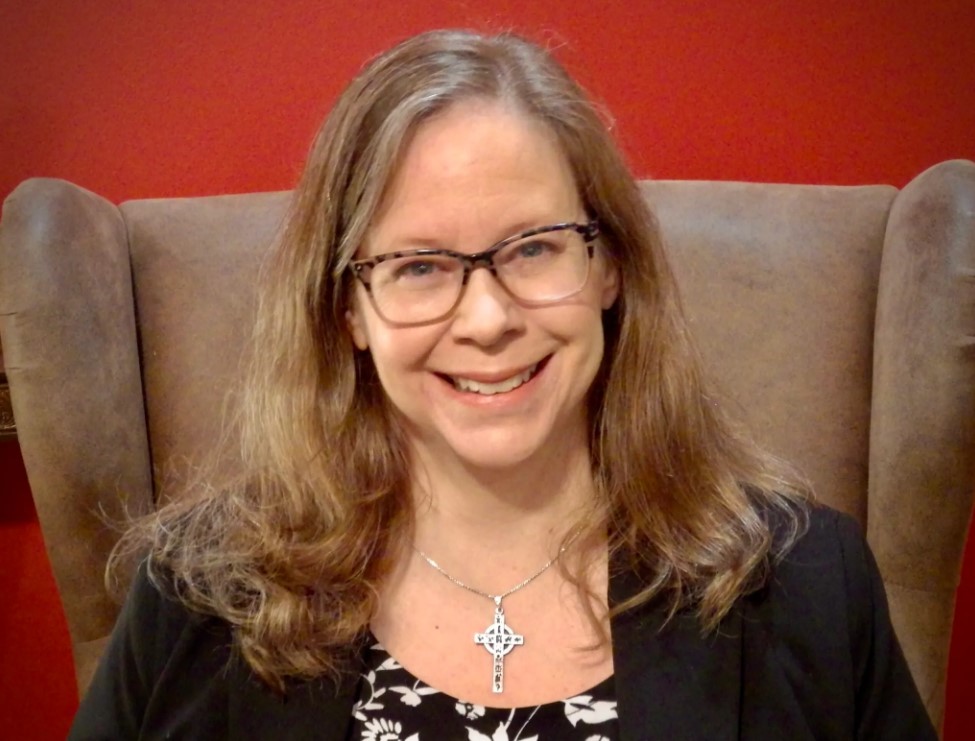Trinity Divinity alum Rev. Dr. Heather McCance, MDiv ’96, Th.M ’10, started as President of the Atlantic School of Theology (AST) in 2023. Now that she has had a year to settle in, we reached out to get her thoughts on AST, her role, and on the church.
Prior to arriving at AST, Heather split her time between roles as director of pastoral studies at Montreal Diocesan Theological College and director of field education at the Montreal School of Theology. Heather has a doctorate in Christian ministry leadership and has worked in and developed parish ministries for more than 20 years in dioceses from Rupert’s Land to Montreal.
1. As an ecumenical school, the Atlantic School of Theology (AST) is a little different from Trinity College. Please tell us a bit about AST.
Atlantic School of Theology was founded in 1971 as an amalgamation of the Faculty of Divinity of the University of King’s College (Anglican), Holy Heart Seminary (Roman Catholic) and Pine Hill Divinity Hall (United Church of Canada). Unlike the Toronto School of Theology, AST is one fully integrated university rather than a consortium of interdependent colleges.
It is also an independent, publicly funded university, which means that as President part of my job is tending the relationship with the provincial government and other universities, as well as continuing the relationship with the Dioceses of Nova Scotia/Prince Edward Island and Fredericton, the Maritime Regions of the United Church, and the Roman Catholic Archdiocese of Halifax-Yarmouth.
AST offers three degree programs: the Master of Divinity, Master of Arts in Theology and Religion (jointly with Saint Mary’s University), and Bachelor of Theology. There are also four diploma programs and any number of continuing education and open enrolment opportunities through the year. The majority of our classes are taught as hybrid online/in-person, except for our summer intensive term which is comprised of three two-week sessions on campus. There are eight full-time faculty, plus staff in the administrative, facilities, advancement, and academic departments and our own library. In addition to the library, there is a student residence, classroom/chapel building and administrative building, and we are planning to renovate what’s called the “1898 Building” over the next couple of years.
2. You’ve been in this job for a little over a year. What’s your favourite thing about your job? Have there been any surprises since you started? Describe what a typical day might look like.
I think my favourite thing about my job is the opportunity to work with so many wonderfully gifted people. Faculty, staff, and students are all so dedicated to what we do here, and it creates a wonderful atmosphere for learning. There was a steep learning curve when I started as President, but I wouldn’t say there were any real surprises.
Taking last Tuesday as my “typical” day, it included chairing a meeting of the Equity, Diversity, Inclusion, and Accessibility Committee, reading and responding to and writing a number of emails, worship in the chapel at noon, weekly meeting with our executive leadership (myself, the Academic Dean and the Chief Administrative Officer), reviewing nominations for the honorary doctorate to be awarded this spring, and teaching a class on Ministerial Leadership. Full, but so very rewarding!
3. What are your priorities as President? You’re still fairly new in this role but looking ahead, what would you like to be remembered for in your tenure?
We don’t know what the Church is going to look like in the future, but it is my strong suspicion that there will be far fewer parishes that are comprised of one congregation that owns their own church-shaped building where a full-time, seminary-trained priest provides or leads all the ministry. Instead, we’re seeing the growth of various configurations of “Church,” including ecumenical shared ministries, parishes led by teams of lay leaders and locally raised and ordained clergy, and bi-vocational or part-time paid ministry.
I would like to be remembered as someone who helped AST to become the leader in offering solid theological education that is appropriate for those leaders in all these contexts and more.
4. What did you learn (or not learn) at seminary that has been or might have been helpful along the way?
One of the great gifts from my time at Trinity College was the opportunity to dive deep into theological reflection. It was truly a time of faith seeking understanding, with instructors who encouraged us to learn not only for the sake of the material itself but to deeply consider it for our own faith journey and for the ways it would impact our ministry leadership.
5. You have held leadership positions in parishes and a variety of institutions across different dioceses. What has this taught you about your own ministry? What has this taught you about the Anglican Church of Canada?
I lived my first 46 years as a cradle Anglican in the Diocese of Toronto. Moving to Rupert’s Land, and then Montreal, and now Nova Scotia and Prince Edward Island, I’ve learned some superficial things that are different (what the word “vestry” means in each of those places!) and some governance things that do matter more (does the parish or diocese own church lands and buildings, and is diocesan assessment mandatory or voluntary).
Context matters. Our cultural experiences shape our understanding of God. Our situatedness calls for different expressions of Church. I have learned to ask questions, to always be open to learning, and to stay humble because I demonstrably do not have all the answers … to pretty much anything!

